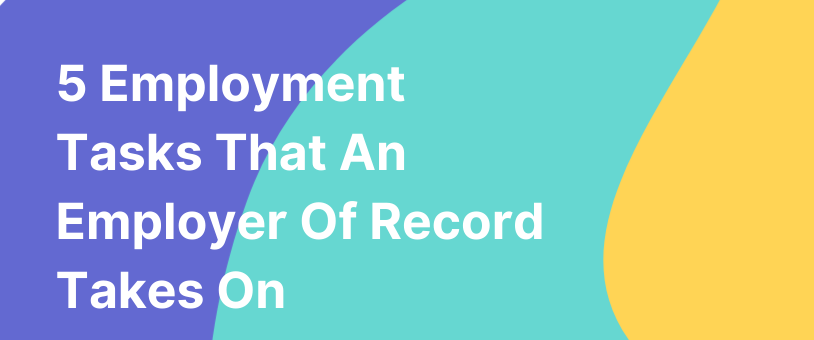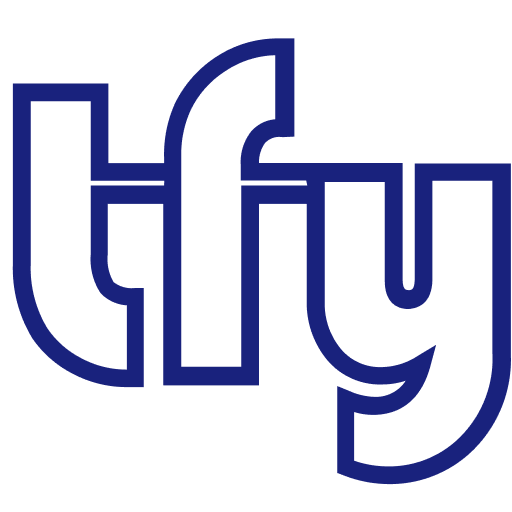An employer of record (EOR) is a third-party organization that takes on the legal responsibility for hiring and managing employees on behalf of another company. This can include a range of employment tasks, such as:
- Managing payroll and benefits, including processing salaries, withholding taxes, and providing employees with access to health insurance, retirement plans, and other benefits.
- Complying with employment laws and regulations, including providing required documents, such as work visas, and ensuring that the company is in compliance with labor laws, employment standards, and other regulations.
- Providing support and assistance to employees, including answering questions, providing training and development opportunities, and helping employees to understand and comply with company policies and procedures.
- Handling employee relations, including addressing concerns and complaints, mediating disputes, and managing performance issues and disciplinary actions.
- Providing tools and additional services to help with human resource management, drafting contracts, onboarding, relocation, and more.
Overall, the specific tasks and responsibilities of an employer of record will vary depending on the needs of the company and the services provided by the EOR. Some EORs may offer a full range of employment services, while others may focus on specific tasks or areas of expertise.
1. Managing payroll and benefits
EORs manage payroll and benefits by handling the administrative tasks associated with paying employees and providing them with access to health insurance, retirement plans, and other benefits.
Processing salaries
EORs are responsible for calculating and paying employee salaries, including any bonuses, commissions, or other compensation. This typically involves calculating pay based on hours worked, salary rates, and other factors, and then issuing payments to employees on a regular basis, such as weekly or biweekly.
Withholding taxes
EORs are also responsible for withholding and remitting taxes on behalf of employees. This typically involves calculating the appropriate amount of taxes to withhold based on the employee’s salary and other factors, and then deducting those taxes from the employee’s pay and submitting them to the appropriate government agency.
Providing access to benefits
EORs can also help employees access health insurance, retirement plans, and other benefits. This may involve working with insurance providers and other benefit providers to offer employees a range of options, and then helping employees to enroll in the plans that best meet their needs.
Overall, EORs play a key role in managing payroll and benefits for companies that use their services. By handling these tasks on behalf of the company, EORs can help to ensure that employees are paid accurately and on time, and that they have access to the benefits they need to support their well-being and financial security.
2. Complying with employment laws and regulations
One of the key responsibilities of employer of records is to ensure that companies comply with employment laws and regulations. This involves providing the required documents, such as work visas, and ensuring that the company is in compliance with labor laws, employment standards, and other regulations.
Providing required documents and permits
EORs are responsible for obtaining and providing the required documents for employees, such as work visas and other legal permits. This may involve working with employees to gather the necessary information, submitting applications and other paperwork to the appropriate government agencies, and following up to ensure that the documents are issued in a timely manner.
Ensuring compliance with employment laws
EORs are also responsible for ensuring that the company is in compliance with employment laws and regulations. This may involve staying up-to-date on the latest laws and regulations, providing training and guidance to employees on their rights and responsibilities, and taking steps to prevent and address any compliance issues that may arise.
Providing support and assistance
In addition to providing the required documents and ensuring compliance with employment laws, EORs may also provide support and assistance to companies and employees as needed. This may involve answering questions, providing guidance on complex legal issues, and helping to resolve any problems or challenges that may arise.
EORs play a critical role in helping companies to comply with employment laws and regulations. EORs can help companies to avoid costly legal problems and ensure that they are operating in a responsible and compliant manner.
3. Providing support and assistance to employees
An employer of record (EOR) provides support and assistance to employees in a number of ways. This includes answering questions, and helping employees to understand and comply with company policies and procedures. Some of the key ways that EORs provide support and assistance to employees include:
Answering HR related questions
EORs are available to answer questions and provide guidance to employees on a range of topics. This may include answering questions about pay, benefits, and other employment-related issues, as well as providing information about visas, work permits, or legal questions. EORs may also provide assistance with specific tasks such as helping employees to understand and use technology or tools required at your company.
Helping employees understand and comply with policies and procedures
EORs can also help employees to understand and comply with your company policies and procedures. This may involve providing clear and concise explanations of the rules and regulations that employees are expected to follow, and offering support and guidance to help employees understand and comply with these policies. By helping employees to understand and comply with company policies, EORs can help to promote a positive and productive work environment, and to prevent compliance issues and other problems.
Overall, EORs play a critical role in providing support and assistance to employees. EORs help ensure that employees are well-equipped to be successful in their roles, and to contribute to the overall success of your company.
4. Handling employee relations
Employer of records (EORs) handle employee relations in a number of ways, including addressing concerns and complaints, mediating disputes, and managing performance issues and disciplinary actions. Some of the key ways that EORs handle employee relations include:
Addressing concerns and complaints
EORs are responsible for addressing concerns and complaints raised by employees. This may involve listening to employees’ concerns, investigating the issues raised, and taking appropriate action to address the problems. EORs may also provide guidance and support to employees to help them understand their rights and responsibilities, and to resolve any issues that may arise.
Mediating disputes
In some cases, disputes may arise between employees and management. EORs can play a role in mediating these disputes, working with all parties involved to identify the root cause of the problem and to find a mutually acceptable solution. EORs may also provide mediation services to help employees and managers communicate more effectively, and to resolve conflicts in a constructive and respectful manner.
Managing performance issues and disciplinary actions
EORs may also provide support and guidance to managers to help them handle performance issues and disciplinary actions in a fair and consistent manner that comply with local labor and employment laws.
For example, different countries have varying time-spans on probation periods. The country your employee works in may also have different termination laws that you need to adhere to.
EORs can help to create a positive and productive work environment, and to ensure that employees are treated fairly and respectfully.
Providing tools and additional services
In addition to handling the legal and administrative tasks associated with hiring and managing employees, employer of records (EORs) may also provide tools and additional services to help with human resource management, drafting contracts, onboarding, relocation, and more. These services may be offered as part of a comprehensive employment solution, or they may be provided as standalone services.
An HR software platform
Many EORs offer a software platform that companies can use for a variety of HR-related tasks. This can include tools for managing payroll and benefits, tracking employee time and attendance, managing employee performance, and more. The software platform may also provide access to training and development resources, as well as other tools and resources to help companies manage their HR processes more efficiently and effectively.
Contract drafting services
EORs may also provide contract drafting services to help companies create clear and legally compliant contracts for their employees. This may include drafting employment contracts, independent contractor agreements, and other legal documents, as well as providing guidance and support to help companies understand their legal obligations and rights.
Onboarding assistance
EORs can also provide assistance with the onboarding process, helping to ensure that new employees are integrated into the company and trained in their roles. This may include providing training materials, helping to set up new employees with the necessary equipment and technology, and providing support and guidance throughout the onboarding process.
Relocation assistance
For companies that hire employees who need to relocate, EORs can provide assistance with the relocation process. This may include helping to arrange housing, transportation, and other logistics, as well as providing support and guidance to help employees adjust to their new location.
By providing these solutions, EORs can help companies to streamline their HR processes, reduce the risk of compliance issues, and provide support and assistance to their employees.
EORS play a critical role when hiring remotely
employer of records (EORs) play a critical role in employment tasks to hire and manage employees. By taking on the legal responsibility for hiring and managing employees, EORs can help companies to streamline their HR processes, reduce the risk of compliance issues, and provide support and assistance to their employees.
EORs can help companies to focus on their core business objectives, while ensuring that their employees are treated fairly and are provided with the support and resources they need to be successful in their roles.
Our recommended EORs
Remote is a robust and modern platform for remote-first teams. EOR, contractor management, payroll, benefits, and more.
Oyster is an intuitive platform that allows you to hire, pay, and care for a global team in more than 180 countries. EOR, contractor management, payroll, benefits, and more.
TFY has features for applicant tracking, freelance management, payroll, and more in a single platform. The platform supports diversity hiring and Corporate Social Responsibility (CSR) initiatives.
Lano is both a B2B & B2C platform. Businesses can use it to process global payroll, hire remote talent and manage contractors, while employees and freelancers can benefit from its payslip service, invoicing app, multi-currency wallet, and more.





